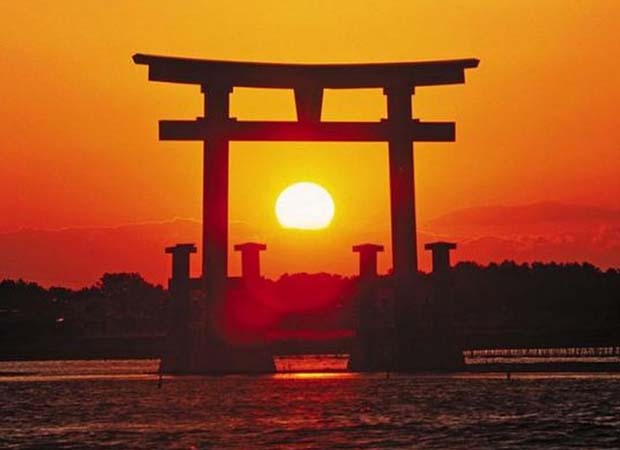Why Japan Called Land of Rising Sun?: Japan’s nickname, “Land of the Rising Sun,” is more than just a pretty picture. It’s steeped in geography, history, and even a bit of mythology.
Japan, often referred to as the “Land of the Rising Sun,” is a captivating country with a rich history and cultural significance. But have you ever wondered why such a poetic name calls it?
Here’s a breakdown of Why Japan Called Land of Rising Sun?:
Also Read: Best Hotel in Hiroshima Japan
Sun from the East
Look at a map. China sits west of Japan. From China’s perspective, the sun appears to rise over Japan, making it the “land where the sun rises.” This influenced how other cultures referred to Japan.
The Power of Nihon
In Japanese, their country’s name is “Nippon” or “Nihon,” which literally translates to “the source of the sun” or “sun-origin.” This directly reflects the country’s position relative to the rising sun.
Historical Origin
The term “Land of the Rising Sun” (Nihon or Nippon in Japanese) has its roots in ancient history. It is believed to have originated from China, where Japan was known as “Rìběn,” meaning “origin of the sun” or “sun’s origin.” This term likely came about due to Japan’s geographical location to the east of China.

A Land Bathed in Sunlight
Japan’s many islands stretch along an east-west axis. This means most of the country gets a good dose of morning sunshine, further solidifying the sun imagery.
Beyond Geography: A Touch of Divinity
The sun holds a special place in Japanese mythology. Amaterasu, the sun goddess, is a central figure in Shintoism, Japan’s native religion. This deepens the connection between Japan and the symbolism of the rising sun.
A Symbol of Hope and Renewal
The daily sunrise represents a new beginning. By associating itself with the rising sun, Japan might be projecting an image of optimism and a nation moving forward.
Cultural Symbolism
Japan’s association with the rising sun extends beyond its geographical significance and holds deep cultural and symbolic meanings. In Japanese mythology and folklore, the sun plays a central role, often represented by the goddess Amaterasu, the mythical ancestor of the Japanese imperial family. The sun is also a symbol of hope, renewal, and prosperity in Japanese culture
It’s Not About Being First
Interestingly, due to time zones, some other countries actually see the sunrise before Japan. But the nickname isn’t about being literally first; it’s about the direction from which the sun appears to rise for neighboring countries and the cultural significance it holds.
conclusion for Why Japan Called Land of Rising Sun?
So, next time you see the Japanese flag, featuring a red sun on a white background, you’ll understand the deeper meaning behind this symbol. It’s a reminder of Japan’s geographic location, its cultural reverence for the sun, and its enduring spirit.
In conclusion Why Japan Called Land of Rising Sun?, Japan’s epithet as the “Land of the Rising Sun” encapsulates its geographical position, cultural symbolism, and historical significance. It reflects a nation that has embraced its past while boldly moving toward the future, making it a source of fascination and inspiration for people around the world.
1 thought on “Why Japan Called Land of Rising Sun?”
Comments are closed.